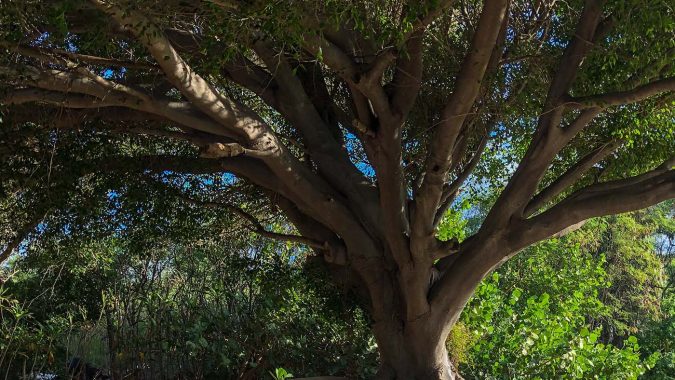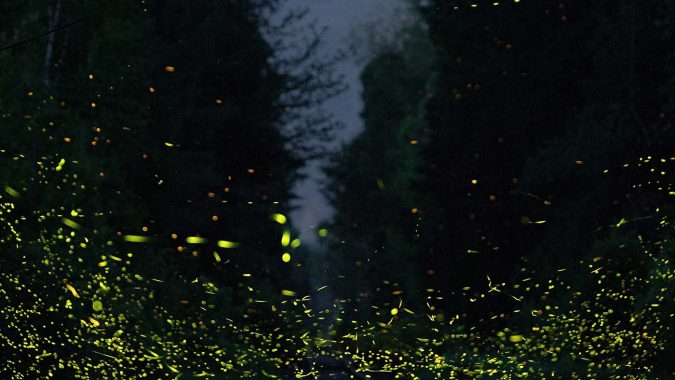
The intricate workings of the law of karma, of which the Buddha gained knowledge on the momentous night of his enlightenment some 2,500 years ago, underlie the course of our lives in subtle and profound ways. Although we’re typically unaware of it, there are times we may start to notice. For instance, when something radically unexpected occurs and we try to understand – why did this happen to me? Or, when we question our fortune in life – good or bad – in comparison to that of others.
Dharma Master Cheng Yen teaches that there’s another way we can come to recognize the play of karma: By observing our relationships and becoming aware of the karmic affinities that influence their quality.
In life, there are people who we feel drawn to and those it seems we can’t help but dislike. Even though someone may be a nice and good person, somehow, when we see them, a feeling of strong dislike arises, unbidden. Just seeing them causes a change in our mood, but we don’t know why we’re reacting this way. As if beyond our control, our attitude turns negative, our tone sharp, our words unkind. Why?
The reason lies in our having formed negative relations with this person in a past life; in Buddhism, we call these negative karmic affinities. But, just as we can form negative karmic affinities, positive karmic affinities can also be formed.
When we share positive karmic affinities with people from a past life, we’ll naturally take a liking to them in this life. Everything they say will sound right and sensible and we’ll readily agree. Even when their views are actually distorted or wrong, we’ll place our faith in them and believe them to be in the right. So even when they lead us astray, we’ll follow along, believing they’re good people doing the right thing.
Meanwhile, when we have negative karmic affinities with people, we won’t be able to accept anything they have to say. Even if, in fact, they’re sincere and good, we won’t feel that way about them.
One of the ways Dharma Master Cheng Yen teaches about the powerful influence of karmic affinities, is by citing a story about the Buddha, Ananda – the Buddha’s primary attendant and one of his principle disciples – and a poor village woman.
When the Buddha came into her village, the impoverished woman couldn’t stand the sight of the Buddha. Immediately upon seeing him, she disliked him and couldn’t take in any of his teachings. When she saw Ananda, however, she liked him a lot and was drawn to him. When he shared the Buddha’s teachings with her, she was very happy to listen and found the teachings to be quite beneficial.
The situation was due to the karmic affinities the three had formed in a former life, when the woman had lost a child and was consumed by grief. A spiritual cultivator passing her on the side of the road saw her crying, and stopped to ask why. But after learning that her tears were over the death of her child, he stoically explained that there was no need to grieve, for death was a natural law of life. His detached manner and direct words felt very harsh and cold, making her feel angry and hurt.
Later, another cultivator happened along the same road and likewise stopped to ask the reason for her tears. Upon learning of her child’s death, he compassionately comforted her while sharing the Buddhist perspective on life and death.
The first cultivator was Shakyamuni Buddha in that life; the second was Ananda. Because of the karmic affinities they’d formed then, in this lifetime, the woman disliked the Buddha on sight, despite his being a Buddha. Such is the impact of karmic affinities.
The making of karmic affinities has much to do with our attitude and behavior. The tiniest of comments or a moment’s harshness in tone could mean the forming of negative karmic affinities. Therefore, we need to be very mindful and aware in our daily life.
We must also understand that the good and bad feelings we have toward people in our lives are in fact due to the karmic affinities formed in past lives. These karmic affinities color our perception of them as good or bad people. If we can realize this, then even if we feel a strong dislike toward someone, we can start to change our perception of them and become successful in overcoming our negative feelings.
In this way, we can begin to transform the karmic affinities between us – for at every moment, we in fact have the chance to create new karmic affinities. But, if we continue to hold on to the belief that the other person is truly a bad person and refuse to consider that our perception is influenced by karmic affinities, we’ll just continue to perpetuate the negative karmic affinities.
If we can truly understand the existence and impact of karmic affinities, we can transform our relationships with others. This is the kind of mindful practice that we need to bring into our daily life.
The sections in italics consist of edited material compiled into English by the Jing Si Abode English Editorial Team, based on Dharma Master Cheng Yen’s talks.
































